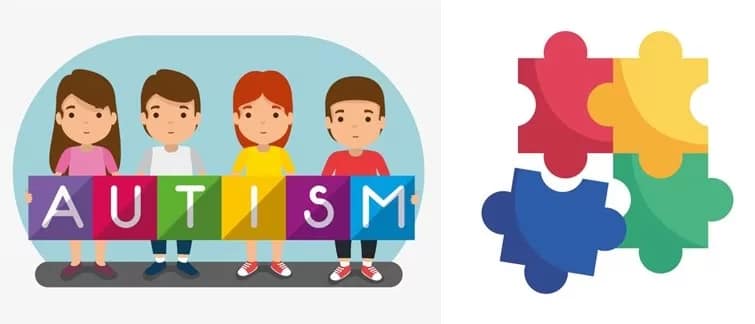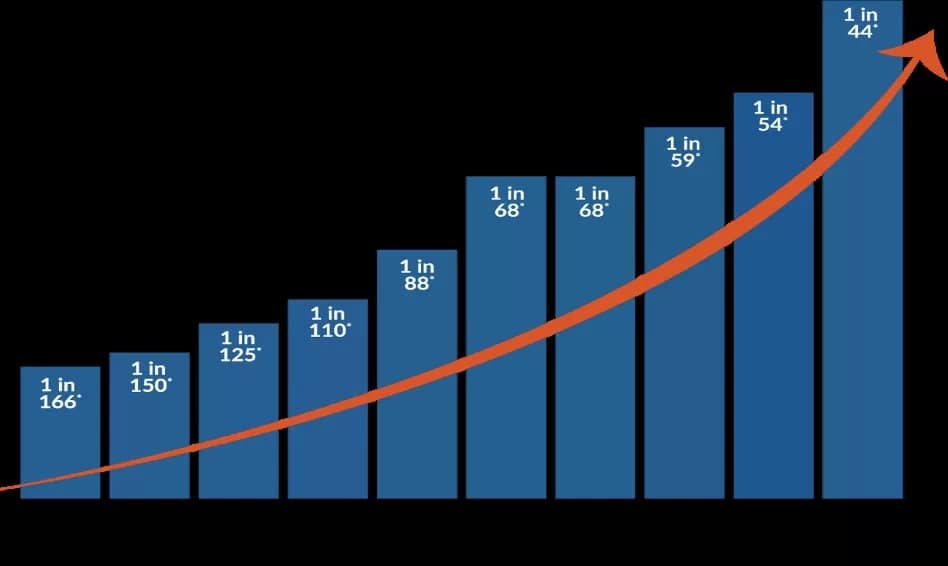
Autism, a complex developmental disorder characterized by difficulties in social interaction, communication, and repetitive behaviours, has emerged as a significant global concern. Recent statistics indicate a rising prevalence in Autism Spectrum Disorder (ASD) worldwide, with approximately 1 in 54 children diagnosed in the United States and 1 in 89 in India, is sparking discussions about whether autism should be labelled an epidemic.
Diagnosis: In India, awareness and research on autism began to burgeon in the late 20th century, with increased recognition in medical, political, and legal spheres. Although the diagnosis of ASD aligns with global criteria, utilizing various screening tools, it relies on behavioural observations, with no definitive genetic, chemical, or neurological tests available.

Challenges such as lack of awareness, trained professionals, resources, and cultural barriers hinder effective screening and diagnosis. ‘Denial’ among the parents often delays the diagnoses and the prognosis, especially in rural and remote areas, also the small towns.
Causes and Perceptions: The term “Autism” was coined by Leo Kanner in 1943, describing children with extreme difficulties in relating to others.
Various factors such as genetic predisposition, perinatal complications, family history, and parental age are associated with ASD.
Early theories attributing autism to emotionally detached parenting, commonly known as “refrigerator mothers”, have been debunked. In India, especially in rural areas with limited understanding, misconceptions are widespread that often confuse ASD with other conditions, with speculation ranging from genetics to chemical exposure or family history of developmental problems. The society’s limited knowledge about developmental disorders continues to fuel stigma, hindering support and respite for individuals with Autism and their families. This underscores the pressing need for educational efforts to raise awareness and understanding about Autism and promote support systems for those affected.

Graph representing a steady increase in autism prevalence over the past few decades (Southwest Autism Research & Resource Centre. https://autismcenter.org/new-autism-prevalence-rate-released-cdc).
Impact: Living with Autism presents challenges in social interaction, communication, and behaviour, impacting daily life and relationships. Families of individuals with Autism face significant stress, depression, financial strain, and social isolation, exacerbated by lack of awareness, limited access to services, and stigma.

Parents of children with autism face numerous challenges, including difficulties in diagnosis due to factors such as poor multi-sensory stimulation and excessive gadget use, leading to misdiagnosis in some areas and underdiagnosis in others. Acceptance of the diagnosis is hindered by cultural misconceptions and misguided advice from family members. Misinformation and superstitions further exacerbate the situation, leading to isolation from family and delayed access to effective treatments.
Standardized therapy is complicated by the unique needs of each child, while inclusive education settings often lack the necessary planning and support. Coordinating various therapies amidst financial strain adds to the burden, along with the struggle to find understanding peers for social interaction and natural development.
The stress on parents is profound, stemming from internal pressures to be perfect caregivers and external challenges such as lack of support from schools, administration, and society; and top of all “financial constraints”. These stressors highlight the need for comprehensive support systems for families navigating Autism Spectrum Disorder.
Gap: India has already introduced initiatives to promote inclusive education and employment, but implementation gaps persist.
Approach: Addressing the global epidemic of Autism requires a multifaceted approach involving increased research, early intervention services, Individualised Education Programs (IEP), and employment & sustenance support programs. Promoting acceptance and inclusion is essential, creating communities where individuals with Autism are valued for their unique strengths and abilities.

Conclusion: Autism presents complex challenges necessitating comprehensive support systems, ecosystem development, mindset shifts, and large-scale interventions. Progress has been made, but concerted efforts are needed to enhance awareness, access to services, and policy implementation to better support individuals with autism and their families in India and globally. Individuals with Autism are needed to be accepted as any individual with a variation.
This article by BloomBuds ASD Life Trust aims to start a worldwide discussion about Autism, breaking down boundaries and stereotypes. Despite the widespread impact of this condition, our dedication remains strong. We believe that by promoting understanding and acceptance, we can remove the obstacles that hinder education, employment, and social inclusion for individuals with Autism. Our initiative, driven by the community, aims to shed light on the everyday struggles experienced by people with autism, helping others to better grasp their unique requirements.
